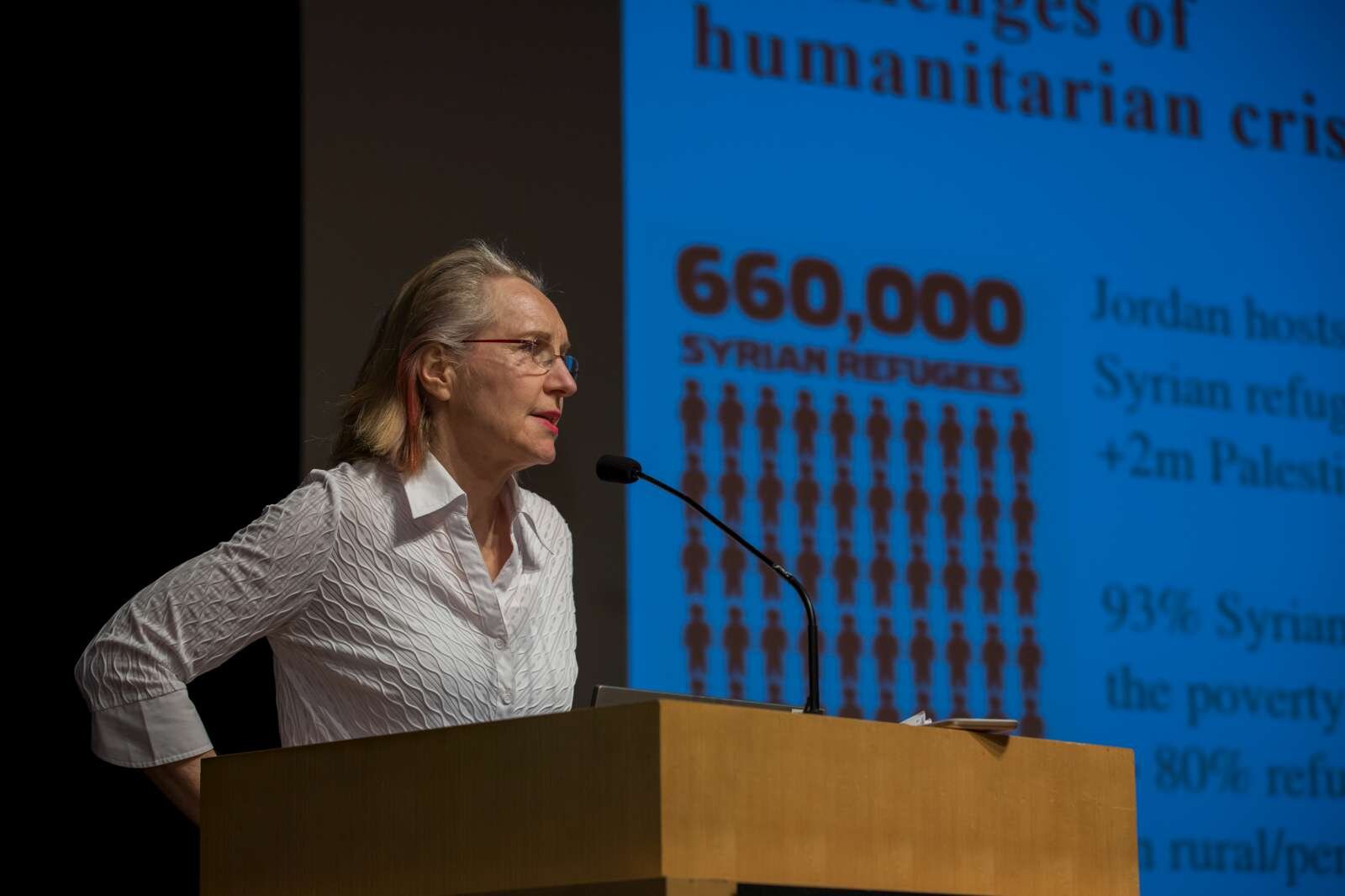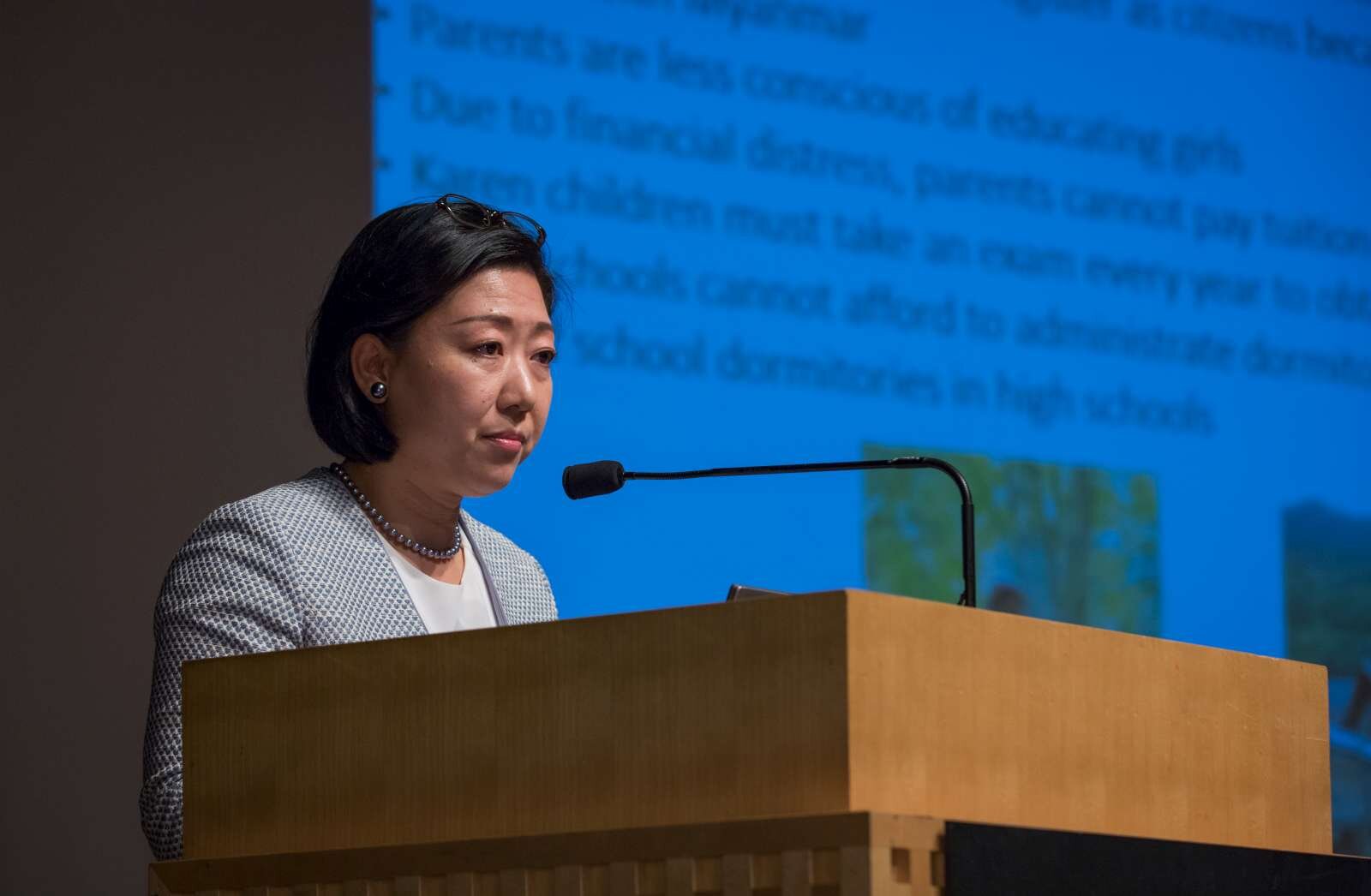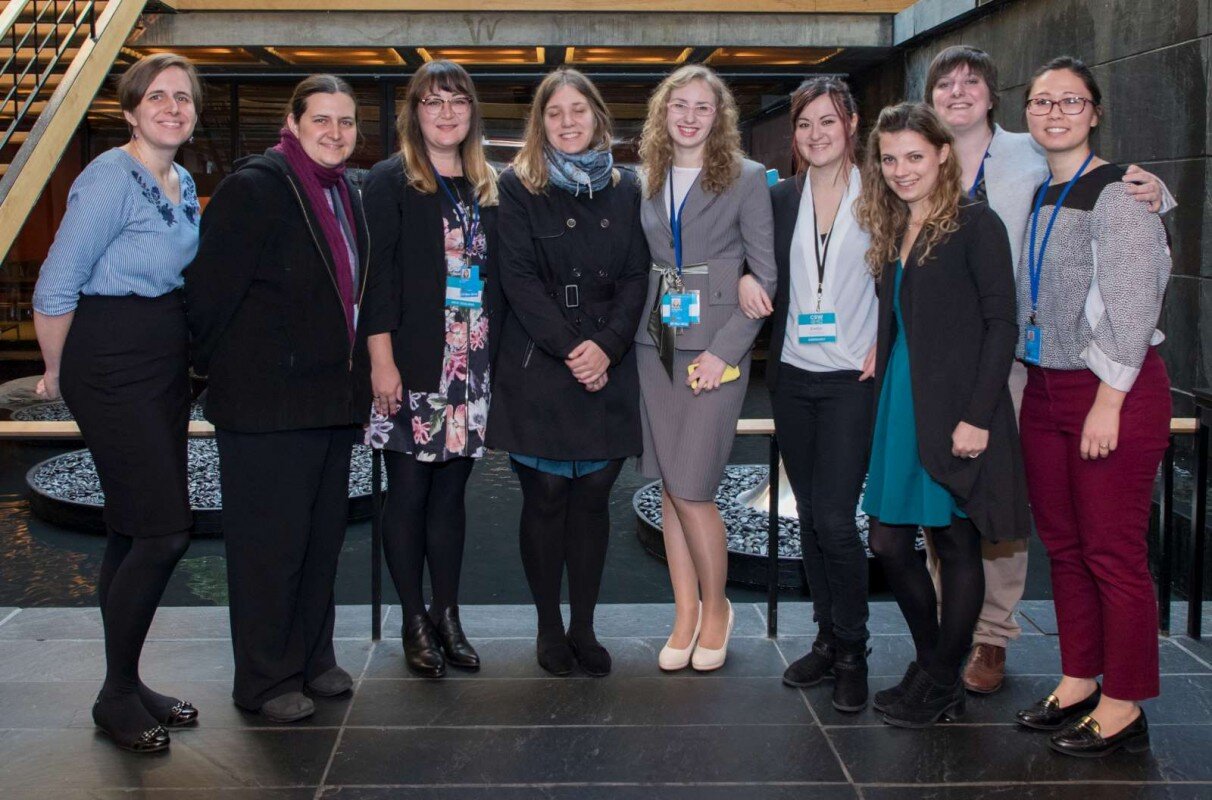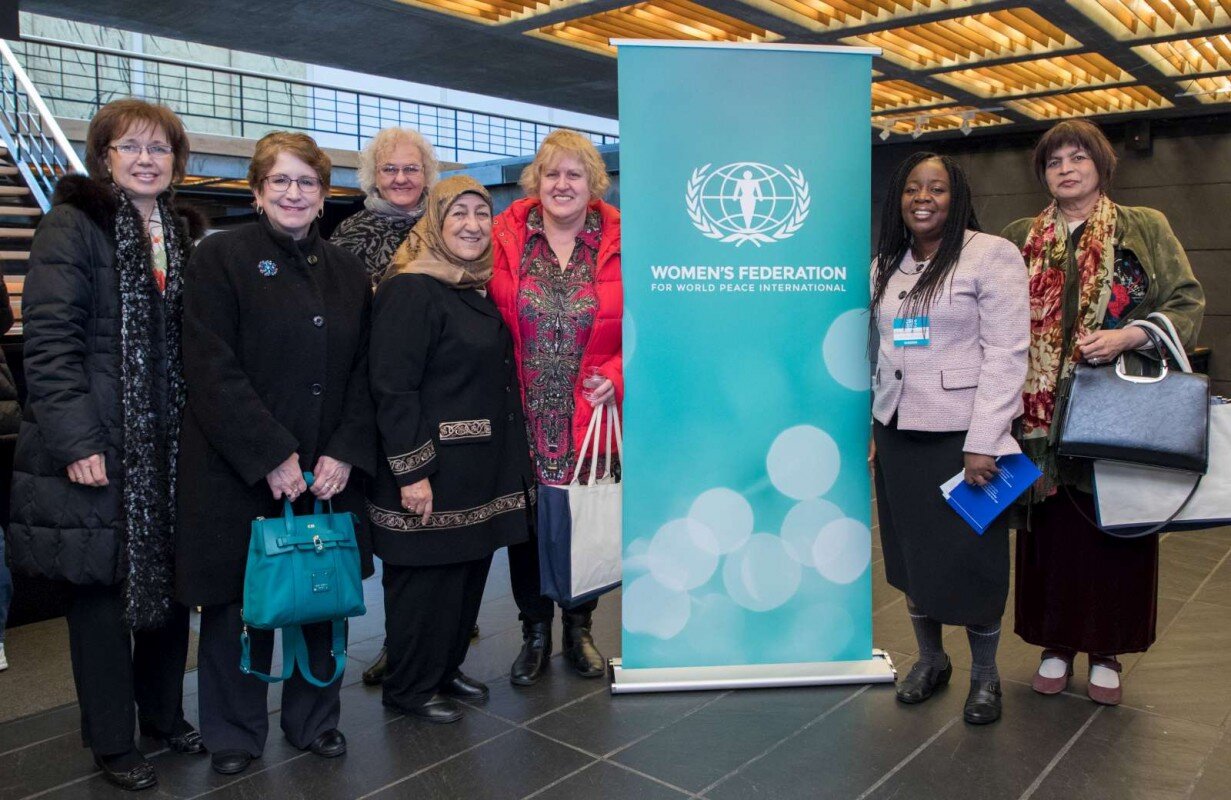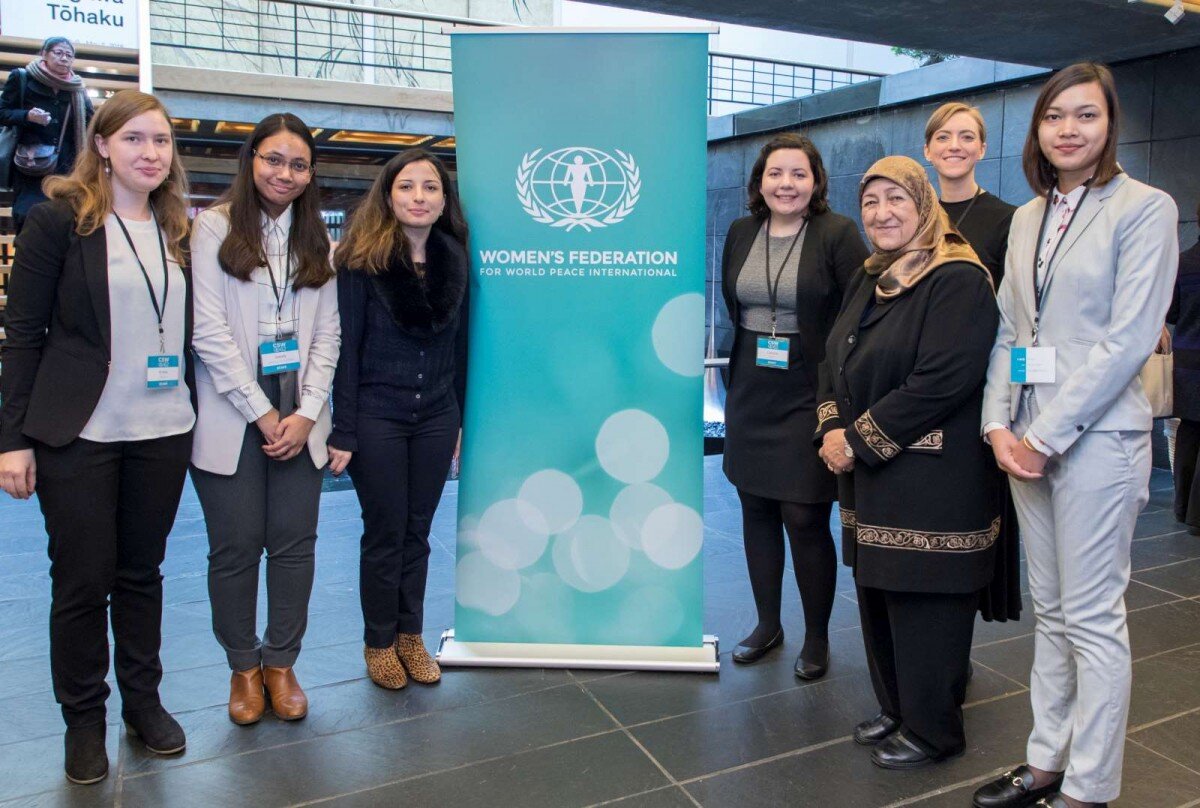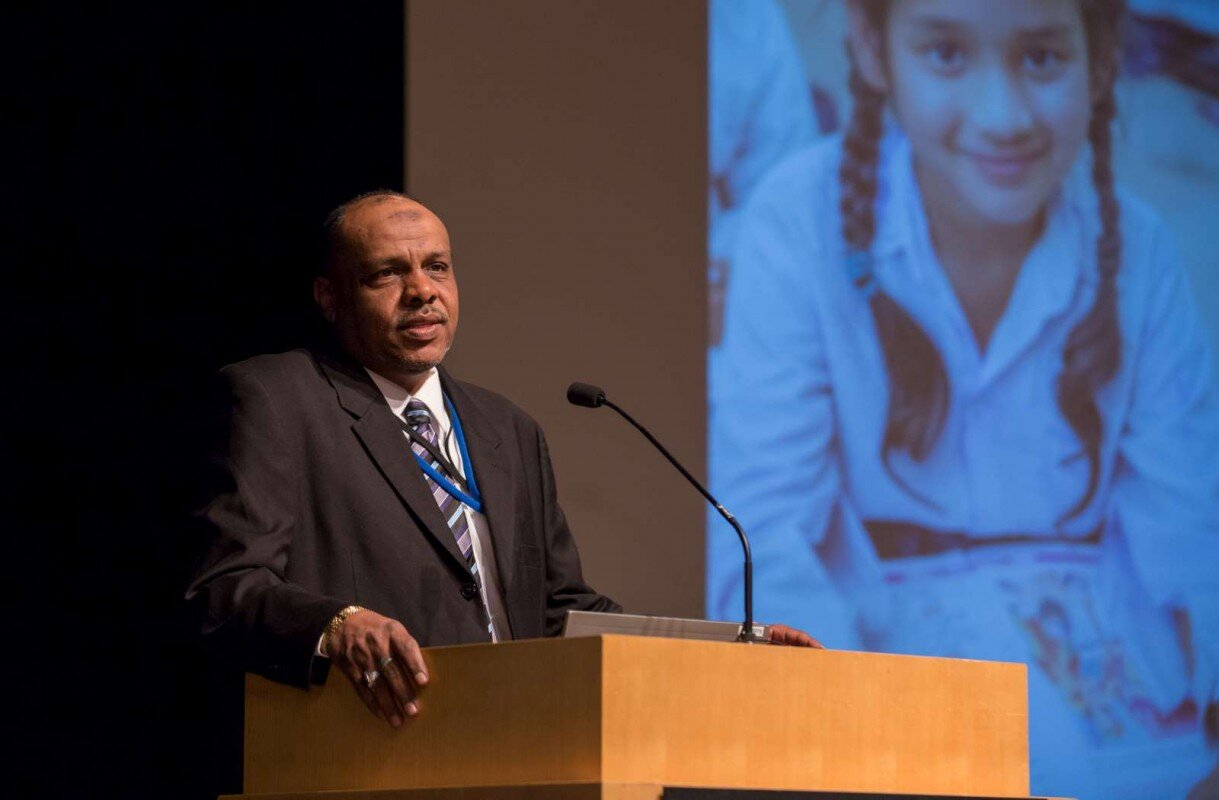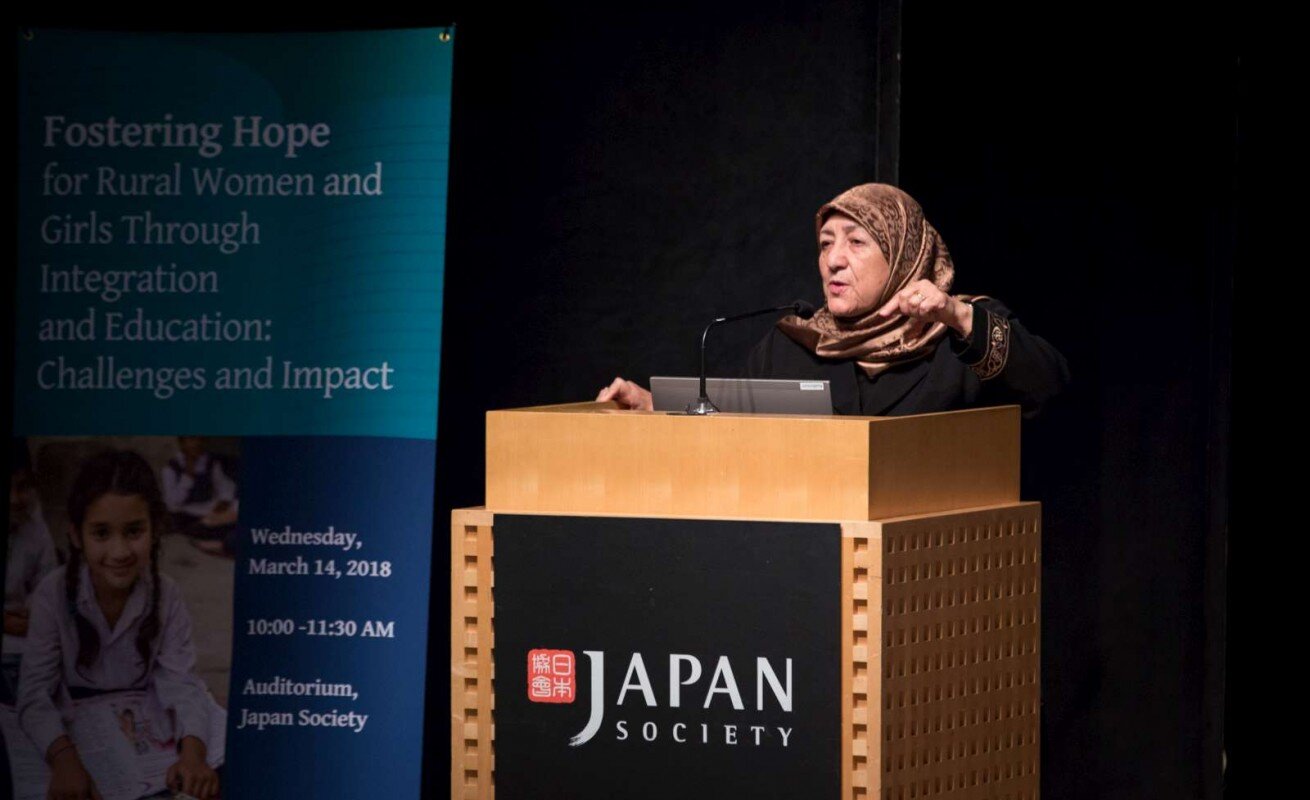FOSTERING HOPE FOR RURAL WOMEN AND GIRLS THROUGH INTEGRATION AND EDUCATION: CSW62 WFWPI SIDE EVENT
On March 14, 2018, I attended the side event organized by Women’s Federation for World Peace, International (WFWPI) and the International Organization for Migration to the United Nations (IOM). This event was part of the sixty-second session of the United Nations Commission on the Status of Women (CSW62), and was held at the Japan Society Auditorium right across from the United Nations. The theme for the side event was “Fostering Hope for Rural Women and Girls Through Integration and Education: Challenges and Impact,” which connected closely to the theme of CSW for this year. Out of all the side events that I attended in and out of the United Nations during CSW62, this event was the most impactful to me. Each speaker held passion and dedication for their work providing opportunities for rural women and girls. They took a topic I had little interest in or knowledge about, and drew me in with fascination and admiration on all they have accomplished.
Representing each of the co-sponsors, Mr. Ashraf El Nour, Director of IOM, and Professor Yeon Ah Moon, President of WFWPI, gave opening remarks. Mr. Ashraf El Nour emphasized how the number of those internationally displaced are increasing by the millions in recent years, and how women and girls are disproportionately affected. Professor Yeon Ah Moon added to the conversation that each of us have the responsibility to love and care for those around the world, and to recognize that peace needs to start with me, my thoughts, and my actions. This emphasis on what we can do to improve the lives of others was the perfect transition to the three main speakers for the program, each of whom have used their skills and connections to assist women, children, and families in remote areas around the world (read Professor Moon’s speech in the next article of this issue of Logic of Love).
Dr. Sakena Yacoobi, Founder and CEO of the Afghan Institute of Learning, was the first speaker to share. Throughout her presentation, I could feel how every aspect of her approach in helping the lives of displaced refugees and women was crafted with the wisdom of her extensive experience and success. She shared that providing food and shelter to refugees is important, but to change their lives in a sustainable way, she focuses on providing quality education. By quality education, she referred to skill training beyond reading and writing, with avenues to implement what they are learning. She also stressed the significance of having teachers trained in making the students feel confident, special, and that they matter, which is incredibly important to those who often feel unwanted and not counted. Dr. Yacoobi asks what their dreams and goals are, and does what she can to find opportunities to make their dreams a reality, instead of imposing her own suggestions of what they should be doing. She has experienced time and again that when you give opportunities infused with love and care, refugees show their resilience and begin to shine in their jobs and in life.
Beyond working with individuals, Dr. Yacoobi works to builds trust with communities, influencing rural villages to invest in local education all the way through the 12th grade. This solves the issue of young girls having to walk miles to school, which is often not a safe or viable option.
With Dr. Yacoobi’s presentation, I was not only touched by what she has accomplished, but how she has done it with respect and love. Her immense dedication for the betterment of others has built a network of trust that has allowed her organization to touch the lives of over 14 million people.
Professor Catherine Panter-Brick
Professor Catherine Panter-Brick, Director of Yale University’s Program on Conflict, Resilience, and Health then took the stage. It was refreshing to hear her perspective, which took from science, methodology, and measurement. She connected to Dr. Yacoobi’s sentiments of asking those in crisis what they need and listening to where they want to be. In order to rebuild their lives, systems need to be put in place across sectors including protection, education, and livelihood. Without this, the impact of provisions are short term, and not effective for long term development, as profound stress impacts emotions, learning, relationships, and decision making.
In order to measure the effectiveness of a program, Professor Panter-Brick discussed her evaluations from a Mercy Corps Advancing Adolescents Program in Syrian countries. At the beginning and end of the program, participants gave their hair samples to be tested for cortisol, an indicator of stress. Her findings were that cortisol levels by the end of the program had dropped by one third.
Ms. Moriko Hori
The third and final speaker was Ms. Moriko Hori, President of WFWP, Japan and the International Humanitarian Service Director for WFWPI. She shared about the WFWP project supporting the education of girls in Karen tribes, located on the border of Thailand and Myanmar. The young girls in the tribes encounter many barriers to education, including finances, residency, and distance to school, many of whom have to travel about 2 days to make it to the nearest school. Many of the parents are illiterate, and need convincing that education is important.
To help these tribes, WFWP set up an education system for them that offers a number of benefits. Students are connected with a foster parent who writes letters of encouragement, and financially covers a three year educational scholarship. The scholarship includes transportation to and from their village, clothing, and a dorm room on location. The school is self-sufficient, and there they farm fish, chicken, pigs, and vegetables for school maintenance and to feed the students. Also extra-curricular education and activities are provided. What an awesome program!!
This event opened my eyes to how many underserved communities there are around the world, and the dramatic impact even just one committed person can have on a dire situation. When that person is able to partner with others—policy makers, donors, volunteers, media, government, and organizations—I can only imagine the speed and lasting change that can take place.



